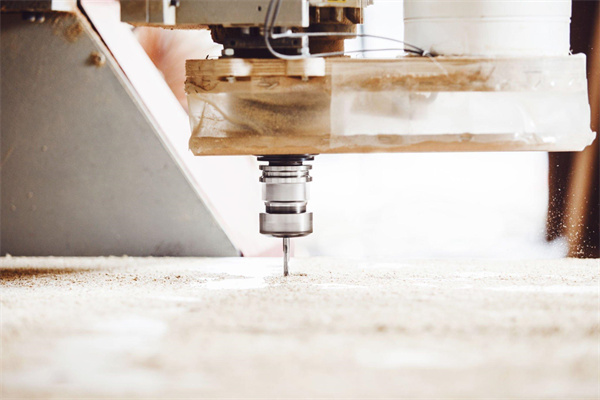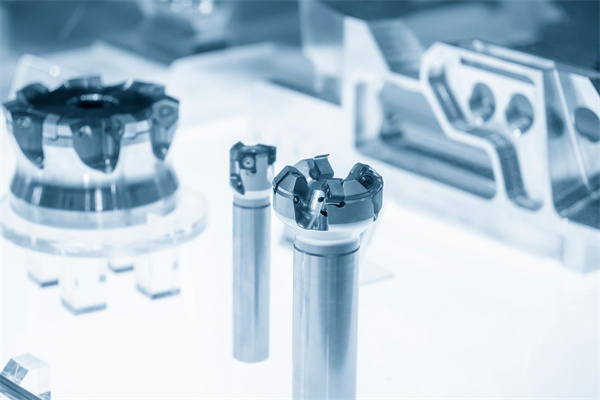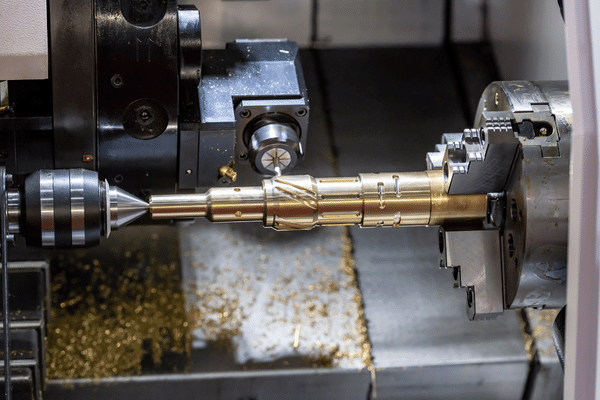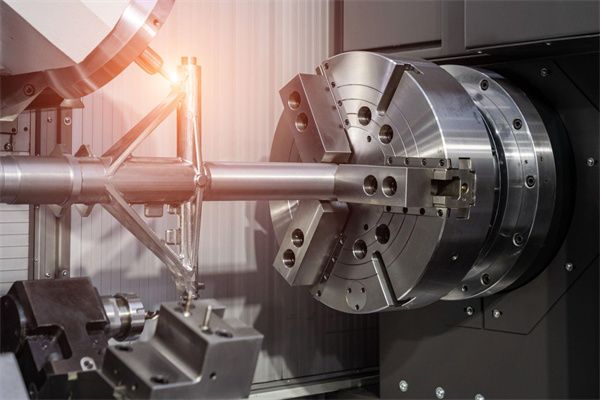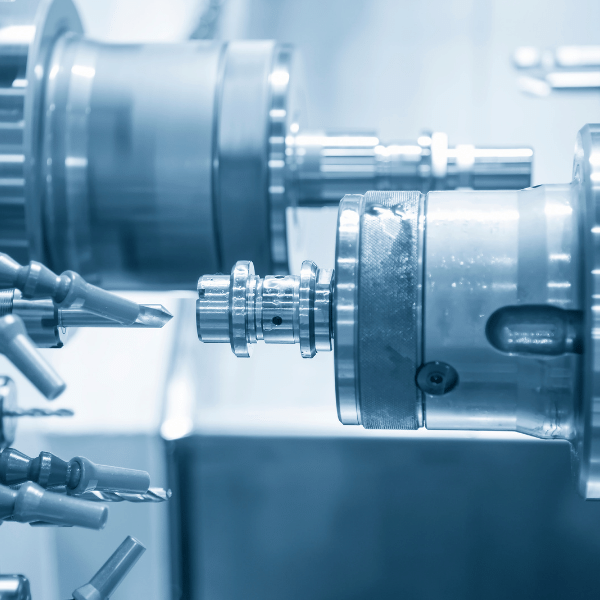[lwptoc]
What is a CNC machine, and what are its uses?
A CNC machine is a computer numerically controlled (CNC) device used to automate the production process of various items. It contains multiple aspects of a manufacturing process, such as cutting or drilling, allowing for precise and repeatable results. CNC machines can be used in many areas, from manufacturing large items like car parts and airplanes to smaller items like jewelry and electronics.
Investing in CNC machines can be a cost-effective solution for businesses looking for an efficient way to produce high-quality products quickly and accurately. They are fast, accurate, and require very minimal labor costs. They can also create complex shapes and designs more precisely than other production processes.
When choosing a CNC machine, it is essential to consider the type of material you will be using and the project size you need the machine for. If you plan on working with more extensive materials, you should get a giant CNC machine that can handle more weight or torque. It is also essential to consider how much automation you will need to get the desired result. More automated machines may provide faster turnaround times but may be more expensive than manual models.
In addition to considering its technical specifications, it is also essential to consider whether your CNC machine will have any additional features or accessories to help increase productivity or accuracy. For example, some devices come with built-in tools such as 3D scanners that allow operators to view complex surfaces in greater detail; others may come with software packages that help streamline programming processes; others even offer integrated robotics capabilities that enable them to perform more complex tasks autonomously.
Finally, when selecting a CNC machine, ensure it meets safety standards set by governing bodies like OSHA and ANSI so your workers can work safely without risk of injury or harm due to faulty equipment or unsafe conditions on the job site. Additionally, ensure that your chosen model has comprehensive customer support services to address problems quickly and effectively before they become too costly or time-consuming.
By considering all these factors when selecting your CNC machine, you’ll be able to find one that perfectly meets your needs while saving both time and money in the long run!
How do you determine which CNC machine suits your needs/projects?
Finding a suitable CNC machine for your needs and projects can be daunting. You must consider factors such as budget, size, type of materials you will be working with, desired level of precision, power requirements, and available space. In this blog post, we’ll explore each factor in more detail so that you can choose which CNC machine best suits your needs.
Firstly, consider your budget. CNC machines are not cheap, and you should set a realistic budget when purchasing. Remember that the price tag on a CNC machine does not always equate to quality; you should research the various models available to get an idea of how much bang for your buck you can get with different brands and models.
Next is the size and type of material you plan to work with. This will influence what type of machine is right for you; if you plan to work with more extensive materials, then a giant CNC machine may be necessary, while smaller materials may require a more compact model or one with an adjustable bed size. Some devices also come equipped with special tools designed specifically for cutting specific types of materials; check out the features offered by each manufacturer before making your purchase decision.
When it comes to precision, it’s essential to identify just how precise a cut is needed; there are machines available in both standard and high-precision versions depending on what you need from them. If accuracy isn’t an issue, then standard-precision machines may suffice, but if extreme precision is required, opt for a high-precision version instead. Check out the repeatability rate (the maximum deviation between two consecutive cuts) when shopping for high-precision machines. This will indicate just how accurate they are likely to be in operation.
Power consumption should also be considered when purchasing a CNC machine; look for models equipped with energy-efficient motors, as these will help keep running costs down in the long term. Additionally, if portability is essential, consider buying a battery-powered model instead of one that always requires a mains power supply – this will enable easy transportation between jobs without having to worry about plugging in anywhere else each time!
Finally, don’t forget about space! The footprint of some CNC machines can be pretty significant, so make sure that whatever model you opt for fits comfortably within its designated area. Otherwise, it might cause problems later if there isn’t enough room to operate safely or efficiently!
In conclusion, selecting the suitable CNC machine for your needs involves looking at factors such as budget, size & type of material being worked with, desired level of precision, power consumption & portability requirements, and available space & setup constraints. Careful consideration should be given to each factor before making any purchase decisions so that you ultimately end up with a machine that meets all expectations without compromising quality or safety standards!
Factors to consider when choosing a CNC machine
When it comes to finding the proper CNC (Computer Numerical Control) machine for your business, there are a lot of factors to consider. These include its size, cost, capabilities, maintenance requirements, and technological features. Choosing a suitable CNC machine can be daunting, but with some research and knowledge of what factors should be considered before purchasing, you can ensure you’re getting the right machine for your needs.
One of the first things to consider is size. The dimensions of the CNC machines vary in size depending on their purpose or application. You must consider how much space is available in your workshop or factory and if that space can accommodate your desired CNC machine. If you don’t have enough room for a large model, you may need to opt for a smaller one.
Cost is another critical factor when selecting a CNC machine. Depending on their capabilities and features, many different models are available at various price points; therefore, it’s essential to understand how much you’re willing to spend before looking at any options. Additionally, specific models can require complex programming, which could lead to additional costs if professional programming is needed.
The CNC machine’s capabilities should also be considered as it can determine what kind of products and components it can produce or produce accurately and quickly. Many devices offer multiple functions, such as drilling holes or cutting particular shapes; however, some higher-end models come with more advanced features that allow them to work with different materials at once or cut intricate designs on them, which could help reduce production time significantly.
Maintenance requirements are another critical factor when choosing a CNC machine; these machines are not cheap investments. Proper maintenance will ensure they last longer and deliver better results over time. Some models require less maintenance than others, so this should be factored in when determining which one is best for your needs; additionally, some manufacturers offer extended warranties that cover potential repairs, so keep this in mind when making your decision.
Finally, technological features are an essential aspect to consider when selecting a CNC machine; newer models typically have more advanced software and hardware than older ones which often means better performance and more precise results when cutting materials or creating components. Additionally, specific software packages come with user-friendly interfaces that make it easier for operators to program the machine without having extensive knowledge about its workings; in contrast, other programs offer increased automation so they complete tasks quicker than manual methods would otherwise take time-wise.
Choosing the suitable CNC machine requires careful consideration of all these factors to ensure that you get one that meets both your budget and needs ideally; understanding what each offers allows you to make an informed decision about which model best suits your business objectives – whether those involve increasing productivity or reducing labor costs – so make sure you do your research before taking the plunge!
Price points for different types of CNC machines
The choice of a CNC machine can be daunting for any business owner or professional due to the wide range of options available and the price points associated with each. To ensure that you get the best value for your money and the machine that is right for your needs, it’s essential to understand what types of devices are available and their strengths and weaknesses. With this information, you can make an informed decision that fits within your budget while still allowing you to get the most out of your CNC machine.
When determining the correct type of CNC machine for your needs, it’s essential to consider its capabilities and price point. Some devices may be capable of more complex operations but cost significantly more than other models. Conversely, some devices may have fewer features but are priced competitively compared to others. It’s also important to note that higher-end CNC machines don’t always provide higher quality results; instead, they may offer extra features such as faster cutting speeds or advanced controls that aren’t necessary for more straightforward tasks.
Given these considerations, three popular types of CNC machines include milling machines, plasma cutters, and laser engravers. Each has unique benefits and drawbacks in terms of cost and capabilities. Milling machines are great for intricate tasks such as making precision cuts on materials like aluminum or plastic due to their ability to control cutting tools with a computerized control system precisely. Depending on their size and capabilities, they typically cost between $10,000-$20,000. Plasma cutters are relatively inexpensive compared to milling machines – usually cost between $2,000-$5,000 – but require high-pressure gas tanks to operate, which can add additional costs over time if not planned for properly beforehand. Lastly, laser engravers can be used on various materials, including wood or metal. However, they tend to be more expensive than other types of CNC machinery – prices range from $5,000-$20,000 depending on their power output level and other factors like bed size and several axes available for movement.
Ultimately when shopping around for a CNC machine, it is essential to identify what you need it for and research different models based on both their features as well as their price points relative to those features; this will ensure that you find a model suitable for the tasks you need to be done without breaking the bank. Additionally, keep in mind that even though higher-end models may include extra bells & whistles which could potentially speed up production time or allow access to more complex projects, they most likely won’t add much value if not necessary, so take care when investing in any machinery – only buy what is required!
The best way to find the suitable CNC machine for your business
Finding the suitable CNC machine for your business can be daunting – there are so many options available and many factors to consider. But don’t worry; you can find the perfect CNC machine with some research and savvy shopping. Here are some tips to help you get started:
1. Consider Your Budget:
Before you start shopping for CNC machines, it’s essential to determine how much money you’re willing to spend on one. Budget-friendly solutions may be the best option for small businesses, while larger companies may have more room to invest in higher-end equipment. Depending on your budget and project needs, different CNC machines will suit other purposes better.
2. Think About Your Needs:
It would be best to consider what you’ll use the CNC machine for. Do you need a large-scale production machine or a smaller one? Will it need special features such as cutting metals or plastics? All these factors will affect which device best suits your business needs.
3. Research Different Brands & Models:
Once you’ve figured out what type of CNC machine you need and how much money you can spend on it, start researching brands and models online. Read reviews from other customers who have used the specific model that interests you – this can give you an idea of its performance and durability. Make sure that any potential purchase has enough spare parts readily available should something go wrong with the machine at any point in time.
4. Ask for Professional Advice :
Finding a suitable CNC machine is no easy feat – but with professional advice from experts in the field, it becomes much easier to decide which model is best for your business needs without compromising quality or functionality. Several companies specialize in finding pre-owned CNC machines that fit most budgets while still being reliable producers of quality products.
5 Test Run Before Buying :
Last but not least, before buying a used CNC machine, always test it first! Ask if the seller allows a test run; this way, you’ll get firsthand experience with its performance capabilities and see if it meets all your requirements without having to commit financially immediately. Following these simple steps will ensure that when you buy a CNC machine, it’s precisely what your business requires – no more, no less!


